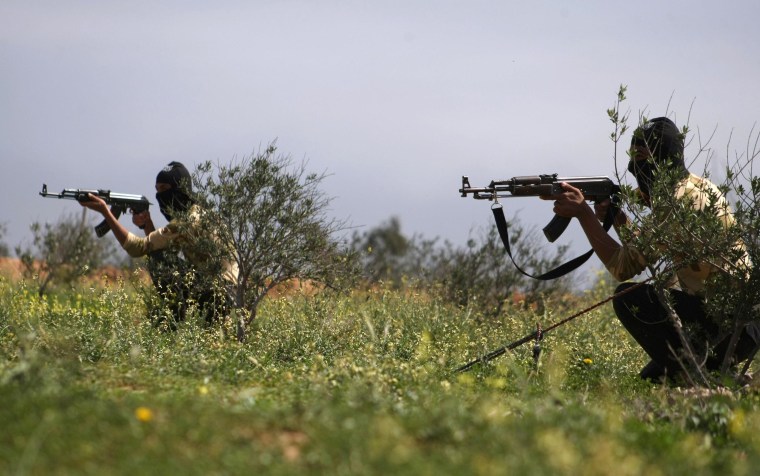A new video posted on YouTube claims to show a British jihadist in Syria touring a militant base and unveiling the austere living conditions of extremist fighters there.
“We wanted to show you the basic living of the brothers in this base,” says the man in the video with a distinct English accent. He wears a balaclava to mask his face and identifies himself using the nom de guerre, Abu Abdullah.
The video offers a rare insight into life for foreign-born fighters in Syria’s bloody civil war and is an example of the growing use of social media by those fighters to recruit others.
Glossy recruitment video
Up to 11,000 foreigners are estimated to have traveled to Syria to join the fractured fight against President Bashar Assad, according to the International Center for the Study of Radicalization (ICSR) at Kings College, London. That makes it the largest mobilization of foreign fighters since the war in Afghanistan in the 1980s, according to researchers.
As many as 2,800 of these fighters are European or Western, including nearly 400 British citizens.
Abu Abdullah’s tour of his unidentified base shows a bare dormitory, scattered with AK-47s, as well as some vestiges of Western living including a bottle of Tabasco sauce, cocoa butter body scrub and a can of Hollister body spray.
On one bed an Apple iPhone and a digital camera can be seen.
“This is where most of the media work happens on this little desk here,” Abu Abdullah says opening up an Apple laptop computer. “We try to do as much work as we can.”
The video ends with an appeal to Western Muslims to join the jihadi cause in Syria.
“Come to the lands of Jihad. Live amongst us. By Allah, it is a better living than where you are.”
The video was released by Rayat al Tawheed, a media production group run by British fighters in Syria who spread English language propaganda about the conflict and try to recruit people to join them. Its members belong to the group known as the “Islamic State of Iraq and the Levant” (ISIL), an Islamic militant group considered particularly brutal. Al Qaeda disavowed the group earlier this year.
“Rayat al-Tawheed is demonstrating characteristic British savvy by utilizing new media in order to get their message out there,” said Shiraz Maher, a Senior Research Fellow at ICSR who recently co-authored a study on social networking trends among foreign fighters in Syria.
“Lots of other European foreign fighters have their own media production companies in Syria, but Rayat al-Tawheed is unparalleled in terms of its production values and sophistication.”
Social media, key tool to attract fighters to jihad
Maher’s research finds that while official propaganda videos from militant organizations are a key tool for attracting fighters to jihad, even more important is the dissemination of information and inspiration across Twitter and Facebook from unofficial, often unaffiliated sources.
“This is the most socially mediated conflict in history,” Maher said.
Preachers like Ahmad Musa Jibril, the American-born Muslim cleric from Dearborn, Mich., are important inspirational figures in the foreign fighter community – and he has a huge social media following. As many as 60 percent of the foreign fighters Maher studied were followers of Jibril on Twitter, his Facebook page has over 200,000 likes, making it 30 times more popular than the average fan page. He has his own YouTube channel where he has published scores of videos, including a 34-part lesson on the principles of Islamic monotheism. A number of the British fighters that Maher spoke to as part of his research said they watched his lengthy lecture series before traveling to Syria.
While he never explicitly calls for his followers to take up arms in Syria and has no known affiliations with extremist militant groups, Jibril is seen to act like a cheerleader for their cause of armed opposition to Assad. His rhetoric is “emotive and extremely charged … confrontational and distrusting, fueling the perception of a Western conspiracy against both Islam and Muslims,” according to Maher’s report.
Unlike the official social media accounts run by militant organizations like ISIL, Jibril connects directly with his followers, encouraging them in their faith and paying his respects directly to the friends and family of Jihadists killed in Syria. Most notably, after the death of British fighter Ifthekar Jaman in an ISIL offensive late last year, Jibril sent a message of condolence directly to his brother on Twitter.
“For the foreign fighters in Syria, it seems, Jibril is not just an eloquent and authoritative supporter, but is also someone who can be called upon to provide friendship and comfort in times of need,” said Maher’s study.
